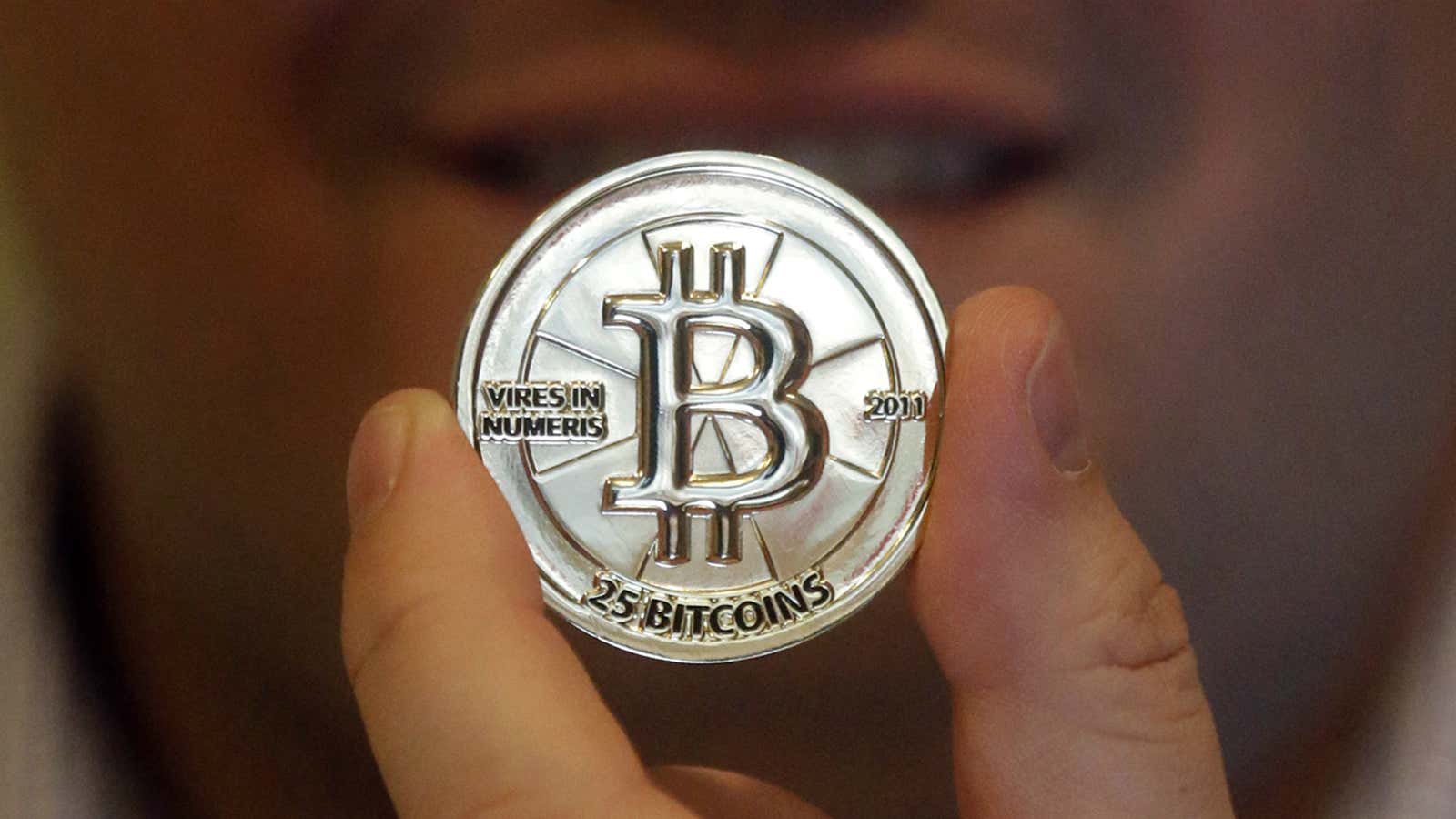It was big news this week when a Bangkok startup announced that Thailand had outlawed Bitcoin, making it the first country in the world to issue a blanket ban on the digital currency. But the reality turns out to be more complicated.
In its statement, Bitcoin Co Ltd said it had tried to register its business with Thailand’s many government agencies, and when it reached out to the Thai central bank, it was told that buying and selling bitcoins, using bitcoins to buy or sell goods and services, and transferring bitcoins in and out of Thailand were all currently illegal.
However, the central bank did not ban Bitcoin outright. Instead it issued a preliminary ruling that using bitcoins as described was illegal because of a lack of existing laws that dealt with the relatively new realm of anonymous, cryptographically protected digital currencies. Moreover, the Bank of Thailand is withholding final judgement on Bitcoin while it looks into the matter further, much like many other countries.
Crucially, the Bank of Thailand does not have the constitutional ability to outlaw anything. But it is entrusted to administer foreign exchange, and the possibility of Bitcoin affecting Thailand’s foreign exchange rate and capital controls that has the central bank especially wary.
“What [Bitcoin Co Ltd] are doing is not exchanging of money. It may constitute being related to changes in the exchange rate,” Bank of Thailand Governor Prasarn Trairatvorakul said in an interview with the Thai newspaper Post Today (link in Thai) on Tuesday (translation by Asian Correspondent). “For now we asked they not involve themselves with the baht because what they do may be a way to speculate on the exchange rate. Hence, we asked for time to look at the issue first.”
Prasarn added that the Bank of Thailand is liaising with Thailand’s Ministry of Information and Communication Technology, Ministry of Finance, and Securities and Exchange Commission Thailand before making a final decision. BoT officials declined to comment further.
In short: Thailand hasn’t yet worked out how to handle Bitcoin. And at least for the time being, many of Bitcoin Co Ltd’s rivals are still operational. In a telephone interview with Quartz, one Bangkok-based Bitcoin trader said that the central bank has made no attempt to contact him or his peers. “All these yellow newspapers are just printing rumors,” he said, “Bitcoin is legal in Thailand like in any other country.”
Frankie Bishop, a virtual currency consultant based out of Chiang Rai in northern Thailand, said that bringing attention to Bitcoin’s uncertain legal status in Thailand is a positive move, because the currency is both disruptive and potentially hugely beneficial to people in underdeveloped countries.” Ultimately, Bishop feels that Thailand has bigger problems to worry about. Even if a Bitcoin ban was introduced, he said, enforcing it would be “difficult to almost impossible…it wouldn’t be worth the headaches.”
